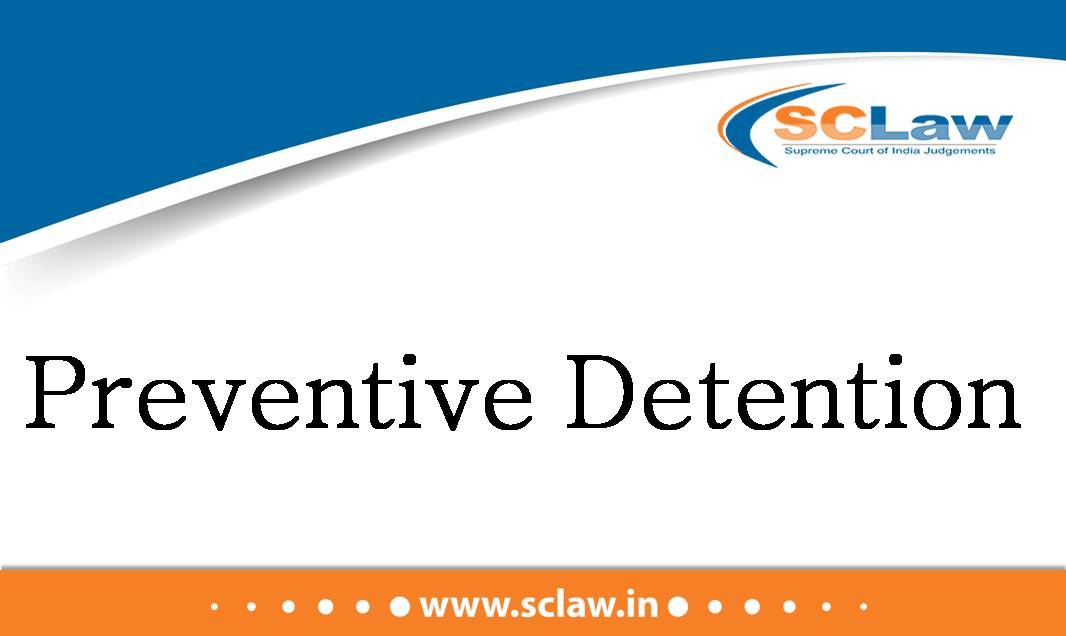Telangana Prevention of Dangerous Activities of BootLeggers, Dacoits, Drug-Offenders, Goondas, Immoral Traffic Offenders etc. Act, 1986 — Section 3(2) — Preventive Detention — Grounds for Detention — Requirement of finding ‘prejudicial to the maintenance of public order’ — Detenu, a ‘drug offender’, was detained based on three criminal cases involving Ganja, with an apprehension that if released on bail, she would engage in similar activities — Held, mere apprehension that the detenu, if released on bail, would be likely to indulge in similar crimes would not be a sufficient ground for ordering preventive detention — Order of detention failed to indicate how the detenu’s activities were prejudicial to ‘public order’ as opposed to ‘law and order’ and was therefore unsustainable. (Paras 3, 5, 8, 9, 10, 11)
2026 INSC 41 SUPREME COURT OF INDIA DIVISION BENCH ROSHINI DEVI Vs. THE STATE OF TELANGANA AND OTHERS ( Before : J.K. Maheshwari and Atul S. Chandurkar, JJ. ) Criminal…

